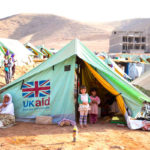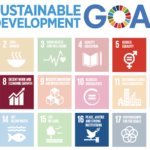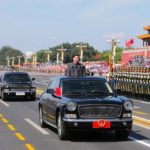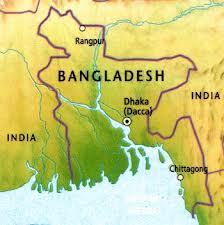What the end of DFID means for international development?
DFID’s termination and merger of the development agenda within the foreign office will imply that the agenda is relegated to a secondary position within a broader foreign policy framework. This will mean that the stock of institutional knowledge and experience, accumulated and perfected over the years by DFID will come to a disastrous end.
COVID-19 crisis threatens Sustainable Development Goals financing, says OECD
According to the OECD’s latest Global Outlook on Financing for Sustainable Development, developing countries are facing a shortfall of USD 1.7 trillion in the financing they would need this year to keep them on track for the 2030 Sustainable Development Goals (SDGs), as governments and investors grapple with the health, economic and social impacts of the COVID-19 crisis.
Introducing the ‘buddy system’ in global development
The goal of the buddy system is not the artificial redistribution of wealth from the wealthier to the poorer countries. The goal is to facilitate interaction and exchange between the buddy countries on different levels, from administration to citizen initiatives.
The International Aid Agenda and Cuban Internationalism
The golden age of aid seems to be in jeopardy; perhaps what is needed is a revolution in the system of aid delivery. And what better country to look to for revolutionary inspiration than Cuba?By taking a leaf out of Cuba’s book, the focus of the Western aid system could be shifted towards sustainability.
Disability Welfare & Development Cooperation: Zambia & Finland
By Yvonne Zimba
As in the rest of southern Africa, people with disabilities in Zambia are among the worst affected by negative socio-economic conditions and face stigmatization and social exclusion. This article focuses on welfare of people with disabilities in two countries, one developed and one developing: Finland and Zambia.
Is Development Aid Neoliberal? Rethinking Global Commitment on Development Issues
By Cucu Wesseh
Aid being tied to the purchase of goods and services to the donor country increases overall costs by 25%. Moreover, most donors channel aid through NGOs from within their own countries. This has major consequences in ensuring sustainable development in the global South.
China’s Belt & Road Initiative: economic prosperity or hegemony?
Chinese President Xi Jinping’s debtbook diplomacy under the guise of a developmental helping hand, an economic windfall to his South-South friends, turns into a stranglehold on their very sovereign economic livelihoods.














